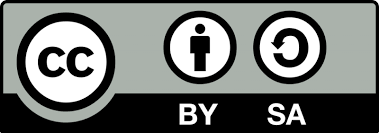Some data on the decline of Classical Languages in Secondary and Baccalaureate Education
DOI:
https://doi.org/10.23824/ase.v0i43.968Downloads
Abstract
For some years now, there has been a worrying decrease in the offer of some of the classical subjects in Secondary schools, which have been pushed out of the education system for a number of different reasons. In order to understand the situation, surveys have been carried out since the 2018-19 academic year, coordinated by the sections of the Spanish Society for Classical Studies (SEEC) and other organizations integrated in the platform Escuela con Clásicos (EcC). The percentage of teachers in Andalusia who have completed the survey for the academic year 2024-25 is so significant that the information obtained is reliable and reflects the real situation in the schools. The conclusions are alarming: the presence of Classical Culture is residual, Greek is living a decline in the educational offer, and Classical Mythology has not managed to be present in a significant number of schools. Only Latin seems, for the moment, to be escaping this decline.
References
Cirera Cirera, M. et al. (2022). Breve presentación de las estadísticas resultantes de las encuestas sobre el estado de las materias clásicas en la ESO y el Bachillerato, curso 2021-2022. Sociedad Española de Estudios Clásicos. Recuperado de https://bit.ly/3szqAUG.
Cirera Cirera, M. y Torres Ruiz, J. (2022), Encuestas de situación. Materias de Cultura Clásica, Griego y Latín. Centros de Educación Secundaria y Bachillerato de España. Sociedad Española de Estudios Clásicos. Recuperado de https://bit.ly/3szqAUG.
Picazo Mesa, J. (2022). La decadencia de las materias clásicas en el currículum de Andalucía (de 1979 a 2022). Trabajo fin de máster, Universidad de Granada. Recuperado de https://digibug.ugr.es/handle/10481/58062.
How to Cite
Issue
Section
Published
Keywords:
Greek (classical); Latin; Classical Culture; Secondary education, curriculum.License
Copyright (c) 2025 Javier Almodóvar García

This work is licensed under a Creative Commons Attribution-ShareAlike 4.0 International License.

Attribution Share-Alike CC BY-SA
Those authors who have publications with this magazine, accept the following terms:
A) The authors will retain their copyrights, which will be simultaneously subject to the Creative Commons Attribution License that allows others to re-mix, modify and develop on your work even for commercial purposes, provided they credit you And to license their new works under the same terms.
B) The authors will retain the rights of exploitation of the intellectual property of this work, and especially the rights of reproduction, distribution, transformation in any of its modalities and public communication of said work, which will be simultaneously subject to the License Of recognition of Creative Commons that allows others to re-mix, modify and develop on your work even for commercial purposes, provided they credit you and license your new works under the same terms.
Creative Commons Attribution-ShareAlike 4.0 International Public License

